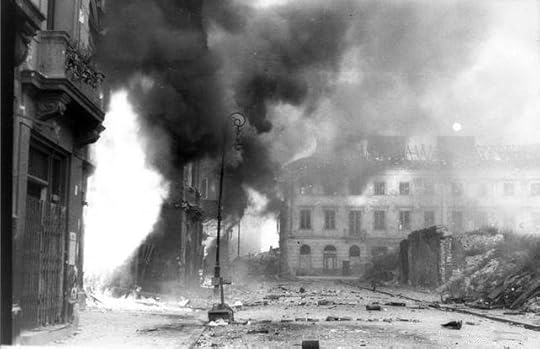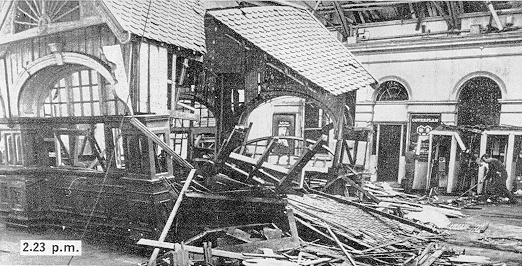That would seem natural. The only reason for appeasement at this stage is to delay confrontation, and if war is not imminent, sending currency abroad to make US jobs is a last resort and a long-term liability with a limited French perspective. Very vulnerable politically.
This sounds logical and goes with what I understand of French rearmament. Unless large problems with plausibility are raised, the suggestion will be incorporated and mentioned when the narrative reaches the Battle of France proper.
Here is the next update. I know I said earlier it would be the first chapter of Drive to the West, but on second thought I decided to have it be the last section of the current part. Comments???
Chapter 6
The Alsace Crisis and the Coming of War
In the winter and early spring of 1941, as the snows which carpeted the ground like a blanket thawed and began their annual melting, an uneasy calm settled over Europe. It was, wrote an American journalist, “like the moment in a card game just before the start of the action, after all the hands have been dealt and the initial bets made, the players know their course of action and the spectators have gathered and assumed their places.” In Paris and London, the French and British high commands gathered their forces, confident in the knowledge that time was on their side. In Berlin, Heinrich Wagner and Werner von Blomberg, determined not to give their enemies that time, finalized their plans to make their decisive move while the window of opportunity Fritz Todt’s efforts had provided the Volkswehr was still open. In Moscow, Stalin was cautiously satisfied that he had staved off the threatened capitalist encirclement of the Soviet Union. In Rome, Mussolini watched and waited. He was, so he informed his German counterpart, “prepared to enter hostilities with the decadent west” if war came between it and Germany and the latter achieved such success as was necessary “to enable the Italian nation to claim its rightful place in the Mediterranean and Africa.” Encouraged by German advisers, he quietly set about the enhancement of the port system along the coast of the Italian colony of Libya and the construction of a rail line to supply his troops should the British Empire in Egypt and the Middle East prove vulnerable.(a)
Debris and smoke in the aftermath of one of the Abwehr's demonstrations in Alsace.
In the middle of March Blomberg sent Wagner the memorandum he had been waiting for, concluding “It can be said with confidence that the readiness of our Volkswehr, relative to that of our adversaries, is at present at the highest which it will ever attain for the foreseeable future. We gain no advantage by attempting to delay the inevitable further.” Upon receiving it Wagner authorized the Abwehr to begin Operation White, (Fall Weiss) which was designed to provide a casus belli for the initiation of hostilities in the west. It was found in the two territories which had been disputed so famously in the past between France and Germany, called Alsace and Lorraine in France and Elsaß and Lothringen in Germany.(b) Diels began a large publicity campaign centered on the alleged pro-German sympathies of their populations, which was combined with the organization of “spontaneous” demonstrations against the French administration in major cities of Elsaß and Lothringen which were in fact carefully orchestrated and stage-managed to attract publicity and provoke a violent reaction from the authorities. Such incidents provided a pretext late in the month to demand that the French government pay compensation to the ethnic Germans expelled from the area after World War One and that it agree to the holding of plebiscites in the two provinces to be overseen jointly by French and German officials, demands calculated, like the infamous Austro-Hungarian ultimatum to Serbia during the July Crisis of 1914, to be unacceptable, and indeed they were duly rejected by Paris on the 26th.
A train station targeted during Operation Reinhard.
On the 31st the Abwehr initiated one last action to justify war with Operation Reinhard. Named for SD chief Reinhard Heydrich, it was an elaborate false flag operation involving simultaneous attacks by special forces dressed in French uniforms against German installations and border posts along the Franco-German border.(c) A finishing touch was provided with the leaving behind of bodies of concentration camp inmates who had been killed by lethal injection, then dressed in French uniforms and shot. These developments, with due hyperbole and exaggeration, were reported in a special “Emergency Announcement” by Goebbels via radio on the morning of April 1st. Thus preceded, Wagner himself took the microphone at high noon. Speaking in a tone which listeners described as “utterly solemn, a projection in words of the stony formality of a medieval cathedral,” he stated that “The lack of any willingness on the part of the French Government to cease its brutal repressions against the people of Alsace and Lorraine, or show respect for their right to self-determination, coupled with its completely unprovoked attacks on our brave troops, leave us with no choice but war... else we will continue to be treated as we were at Versailles. What our enemies have started, we shall finish. The cause of National Socialism is just, and we will prevail.” After he concluded, there was a pause. Although it lasted only a second in time it seemed to go on forever. Then, at last, came the strains of the Horst Wessel Song. Although they had been heard so often, the momentousness of the occasion lent a special significance to the words, “The flag on high, the ranks tightly closed... for the last time, the call to arms is sounded...”
Notes:
(a) This occurs as a result of the Italians having more time to prepare and somewhat better inter-Axis cooperation in TTL.
(b) A reference to the fact that in OTL Wagner was the gauleiter of Alsace.
(c) The Operation Himmler of OTL, obviously not called that here, conducted against France instead of Poland.
Next: Blood on the Ice.

